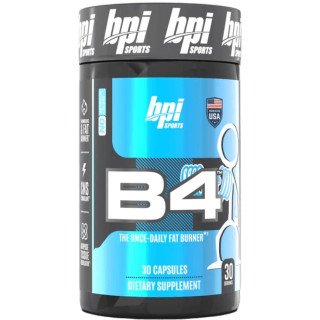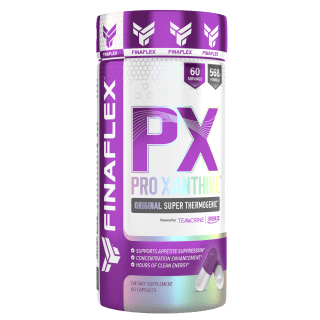As a key component in skincare and haircare products, including anti-aging creams and serums, Astrion® provides a holistic solution for...

APPETITE SUPPRESSION
APPETITE SUPPRESSION
Appetite suppression reduces the desire to eat, which can be a helpful tool for weight loss and weight management.
Goal OVERVIEW
Appetite suppression is the process of reducing the desire to eat. It can be a helpful tool for weight loss and weight management. There are a number of natural and artificial ways to suppress appetite, including eating high-fiber foods, drinking water, exercising, getting enough sleep, and taking certain supplements.
Appetite suppression is not a magic bullet for weight loss, but it can be a helpful addition to a healthy lifestyle. When combined with other healthy habits, appetite suppression can help you lose weight, control your blood sugar, and improve your mood.
Remember, suppressing appetite is a process, not a quick fix, intended to help with weight loss and weight management. Lastly, It is not a magic bullet but can be a helpful tool when combined with other healthy lifestyle changes.
What You Should Know
Appetite suppression can be beneficial for people who are overweight or obese, as well as people who are trying to lose weight after surgery or other medical procedures. Appetite suppression can have side effects, such as dry mouth, constipation, and nausea. If side effects are experienced, it is important to stop taking the product and talk to your doctor. Talking to your doctor before using appetite suppression products is important.
FOOD FOR THOUGHT
One should use GenMag.com to research specialty ingredients formulated specifically to suppress appetite. Many are uniquely qualified to safely suppress appetite because they are: naturally-sourced and, less likely to have side effects, and extensively researched, which means there is a good understanding of their safety and efficacy; they targeted at specific mechanisms in the body, making them more effective than general appetite suppressants, bioavailable making them more easily absorbed and used by the body, and safe when used as directed.

SHAGANDHA® BY SABINSA
Shagandha® is a standardized powdered extract from the roots of Withania somnifera, commonly known as ashwagandha. Shagandha® offers various health benefits, including reducing stress, anxiety, and insomnia while improving cognitive function, reducing inflammation, and boosting the immune system. It is available in capsules, powders, and teas and is often used in herbal mixtures. Considered to be a breakthrough Adaptogenic.
Sponsored Content
FAQ
Natural appetite suppressants can be a helpful way to manage hunger without relying on medication or processed supplements. Remember that these should be part of a balanced diet and lifestyle to support healthy weight management. Here are some natural appetite suppressants that might help:
- Water: Drinking enough water can help you feel full and might reduce overeating. Sometimes, thirst is confused with hunger.
- High-Fiber Foods: Foods high in fiber, like whole grains, fruits, vegetables, and legumes, can slow digestion and keep you feeling full longer.
- Protein-Rich Foods: Protein can promote feelings of fullness. Foods like lean meats, fish, eggs, and legumes are great choices.
- Healthy Fats: Avocados, nuts, seeds, and olive oil contain healthy fats that can increase satiety.
- Spices: Certain spices like cayenne pepper and ginger have been associated with appetite suppression
- Green Tea: Some studies suggest that compounds in green tea help control hunger.
- Coffee: The caffeine in coffee can temporarily suppress appetite in some individuals.
- Mindful Eating: Practicing mindfulness while eating can help you tune into your body’s hunger cues, potentially reducing overeating.
- Dark Chocolate: Some research suggests that the bitter taste of dark chocolate might suppress appetite, though more studies are needed.
- Soup: Starting a meal with a broth-based soup might help you consume fewer calories during the meal.
- Fermented Foods: Foods like yogurt, kefir, and sauerkraut may affect hunger-related hormones, though research is ongoing.
- Chia Seeds: They can absorb their weight in water many times, forming a gel-like substance in the stomach that can promote feelings of fullness.
- Apple Cider Vinegar: Some people find that apple cider vinegar can suppress appetite, but the research on this is mixed.
- Almonds: Eating a small portion of almonds might reduce hunger and help you eat fewer calories later in the day.
- Herbal Teas: Herbal teas, like peppermint tea, may have an appetite-suppressing effect.
Remember, while these natural methods may help control appetite, they are not a substitute for a balanced and healthy diet. If you’re struggling with weight management or hunger control, consulting with a healthcare provider or registered dietitian can provide personalized guidance tailored to your needs and health goals. They can help you develop an eating plan that is satisfying, nutritious, and supports your overall wellness.
Suppressing your appetite without medication is best approached through a combination of healthy lifestyle choices, eating habits, and mental strategies. Here’s a guide to help you manage your appetite naturally:
- Stay Hydrated:
- Drink Enough Water: Sometimes, the body can confuse thirst with hunger. Drinking a glass of water before meals may help you feel fuller.
- Opt for Low-Calorie Beverages: Herbal teas or infused water with lemon or cucumber can be satisfying without adding extra calories.
- Eat a Balanced Diet:
- Include Protein: Protein-rich foods like lean meats, eggs, and legumes can help you feel satisfied.
- Eat Fiber-Rich Foods: Whole grains, fruits, and vegetables provide fiber, which slows digestion and promotes a feeling of fullness.
- Choose Healthy Fats: Foods like avocados, nuts, and olive oil can help with satiety.
- Avoid Sugar and Refined Carbs: These can lead to blood sugar spikes and subsequent crashes, which might increase hunger.
- Focus on Eating Habits:
- Eat Slowly: It takes time for the brain to receive signals of fullness. Eating slowly can help you recognize when you’re full.
- Use Smaller Plates: This can help with portion control and potentially reduce the amount of food you eat.
- Eat Regular, Balanced Meals: Skipping meals or waiting too long between them might lead to overeating later.
- Mindful Eating:
- Pay Attention to Hunger Cues: Learn to recognize the difference between emotional eating and genuine hunger.
- Practice Mindful Eating: Focus on the taste, texture, and smell of your food, which can increase satisfaction and help you tune into your body’s signals.
- Lifestyle Considerations:
- Get Enough Sleep: Lack of sleep may affect hunger hormones, leading to increased appetite.
- Manage Stress: Stress can lead to emotional eating. Techniques like meditation, deep breathing, or engaging in hobbies can help manage stress.
- Stay Active: Regular exercise can aid in appetite control.
- Plan Ahead:
- Prepare Healthy Snacks: Having ready-to-eat healthy snacks can prevent you from reaching for unhealthy options when hungry.
- Meal Planning: Planning your meals ensures that you have nutritious options available, reducing the temptation to eat unhealthy foods.
- Consider Professional Support:
- Consult with a Nutritionist or Dietitian: A healthcare provider specializing in nutrition can help you understand your unique needs and develop a personalized eating plan.
It’s important to emphasize that the goal shouldn’t necessarily be to suppress appetite but rather to understand and respond to your body’s natural hunger cues in a healthy way. If you find that you’re consistently struggling with hunger or other eating issues, seeking professional guidance is a good step, as this could be indicative of underlying health concerns.
Appetite suppressants are medications or supplements designed to reduce feelings of hunger and help control food intake. They can be prescription drugs or over-the-counter supplements. While appetite suppressants can be effective for some people in managing weight and eating habits, they also come with potential side effects. It’s important to note that the specific side effects can vary depending on the type of appetite suppressant and the individual’s response.
Here are some common side effects associated with appetite suppressants:
- Gastrointestinal Issues: Many appetite suppressants can cause gastrointestinal disturbances such as nausea, vomiting, diarrhea, or constipation. These effects can be mild to moderate and might subside over time as your body adjusts to the medication.
- Dry Mouth: Dry mouth or xerostomia is a common side effect of appetite suppressants. It can be uncomfortable and increase the risk of dental issues due to reduced saliva production.
- Increased Heart Rate and Blood Pressure: Some appetite suppressants work by stimulating the central nervous system, which can increase heart rate and blood pressure. This can be problematic for individuals with pre-existing heart conditions or hypertension.
- Restlessness and Insomnia: Stimulant-based appetite suppressants can cause restlessness, nervousness, and difficulty sleeping. These effects can interfere with daily activities and overall well-being.
- Dizziness and Headaches: Some individuals may experience dizziness or headaches due to taking appetite suppressants. These symptoms can be bothersome and affect daily functioning.
- Mood Changes: Stimulants can impact mood and lead to feelings of anxiety, irritability, and even mood swings.
- Dependency and Tolerance: Prolonged use of certain appetite suppressants, particularly those with stimulant properties, can lead to tolerance (requiring higher doses for the same effect) and dependence (experiencing withdrawal symptoms when stopping the medication)
- Digestive Disruptions: Some appetite suppressants can interfere with the body’s ability to absorb nutrients, leading to potential deficiencies in vitamins and minerals.
- Allergic Reactions: As with any medication, allergic reactions to appetite suppressants are possible. This can range from mild skin reactions to severe allergic responses that require immediate medical attention.
- Interactions with Other Medications: Appetite suppressants can interact with other medications you might be taking, potentially reducing their effectiveness or causing adverse effects.
It’s crucial to consult with a healthcare professional before starting any appetite suppressant regimen. They can help determine if these medications are appropriate for you, considering your medical history, current medications, and any underlying health conditions. If you experience severe or persistent side effects while taking an appetite suppressant, you should stop the medication and seek medical attention. Adopting healthy eating habits, regular exercise, and lifestyle changes can effectively manage weight without relying solely on appetite suppressants.
Choosing the right appetite suppressant depends on your needs, preferences, and underlying health conditions. Here’s a step-by-step guide to help you make an informed choice:
- Assess Your Needs:
- Understand Why You Want to Suppress Appetite: Is it for weight loss, managing a specific health condition, or another reason?
- Identify Any Underlying Health Issues: Overeating or constant hunger may indicate an underlying health problem. Addressing that issue might regulate your appetite.
- Consider Natural Approaches First:
- Healthy Diet: Focus on a balanced diet that includes protein, healthy fats, and fiber to promote feelings of fullness naturally.
- Lifestyle Changes: Consider factors like hydration, sleep, stress management, and physical activity that can affect appetite.
- Research Available Options:
- Over-the-Counter Supplements: Considering supplements, their efficacy and safety might vary widely. Research the ingredients and look for scientific backing.
- Natural Foods and Habits: Look into natural appetite suppressants like water, fiber-rich foods, mindful eating practices, etc.
- Consult with a Healthcare Professional:
- Seek Professional Guidance: A healthcare provider or registered dietitian can assess your situation and recommend appropriate appetite management strategies.
- Discuss Medications and Health Conditions: If you have any chronic health conditions or take medications, your provider will consider these when recommending an appetite suppressant.
- Avoid Quick Fixes and Fad Products:
- Beware of False Claims: Many products promise quick weight loss or dramatic results. If it seems too good to be true, it probably is.
- Consider Side Effects: Some supplements or medications might have side effects or interact with other medicines.
- Monitor Your Response:
- Track Your Progress: Keep an eye on how you respond to the appetite suppressant, whether it’s a change in eating habits, a supplement, or a combination of strategies.
- Adjust as Needed: If something isn’t working or if you experience negative effects, don’t hesitate to reassess and make changes.
- Focus on Overall Health:
- Adopt a Holistic Approach: Rather than focusing solely on suppressing appetite, aim for a healthy and balanced lifestyle that supports overall well-being.
Remember, appetite suppressants might assist with weight management or specific health goals but should not replace healthy eating and lifestyle habits. Professional guidance from healthcare providers can offer personalized insights and ensure that your chosen approach aligns with your individual health needs and goals.
Related Videos
Articles
The recovery period after exercise is when your body repairs and strengthens muscle tissue, refuel energy stores and adapts to...
Testofen® is an innovative natural ingredient primarily derived from fenugreek, a well-regarded herb known for its health-enhancing properties. This specialized...



























